 Your new post is loading...
 Your new post is loading...
Google’s Project Fuchsia OS has been shrouded in mystery for the past few years. It was discovered almost two years ago when the company began quietly posting code to its GitHub repository and expanded with an actual “Armadillo” system UI last year, but there’s been little to no information about what Google intends to do with Fuchsia. According to a new report from Bloomberg, the Fuchsia team’s goal is nothing less than creating a single, unifying operating system that could run on all of Google’s devices: replacing Android, Chrome OS, and powering all of Google’s smart home hardware. The time frame is similarly ambitious: the team hopes to release a connected home device powered by the new OS within three years to introduce Fuchsia before moving on to larger devices like laptops and phones within the next five years. It’s certainly an interesting idea that would give Google a second chance to build a more secure, easily updated OS to enable even better cross-platform integration than the current Chrome OS / Android divide. Security is also said to be something at the core of Fuchsia, which could help Google better compete with Apple’s more tightly locked down iOS, too.
How could Microsoft’s Windows Phone licensing business model stand a chance against Google’s Free and Open Android? None of the Redmond giant’s complicated countermeasures worked, its smartphone platform is dead. And yet, inexplicably, Microsoft failed to use a very simple move, one we’ll explore today.Just back from three weeks in the Country of Good Sin’s heartland, I see Microsoft’s fresh and well-received Fourth Quarter Fiscal Year 2017 Results. The numbers acknowledge what was already notorious: Windows Phone is dead. “Phone revenue was immaterial and declined $361M.” This doesn’t come as a surprise. Despite Microsoft’s strenuous efforts to breathe life into its smartphone platform and devices, Windows Phone had been on an inexorable downward slope for several years, confirming a Horace Dediu theorem[as always, edits and emphasis mine]: “As far as I’ve been able to observe, any company in the mobile phone market that ended up losing money has never recovered its standing in terms of share or profit.” Let’s recall that, in September 2010, Redmond employees held what CNET called a “tacky ‘funeral’” for iPhone and Blackberry. One wonders how they’ll memorialize Windows Phone. The gross failure of what once was the most powerful and richest tech company on the planet led to a search for a platform killer. Detectives didn’t think they had to go far to nab a suspect: Android. Microsoft’s Windows Phone was murdered by Google’s smartphone OS. How could Redmond’s money-making software licensing business model survive against a free and open source platform? Case closed. No so fast. Microsoft’s smartphone troubles started well before the birth of Android. In a reversal of the famous dictum Victory Has Many Fathers But Defeat Is An Orphan, Windows Phone’s collapse seems to have had many progenitors deeply embedded in the company’s decades-old culture. But before we look at facts, let’s engage in a bit of fiction, let’s imagine Microsoft decides to fight Android on Google’s turf. In this alternate reality, Microsoft easily kills Android with one simple headline: Windows Phone Now Free The rest of the pitch writes itself.
Based on IDC data charted for us by BI Intelligence, Samsung’s market share is getting eaten not only by Apple, representing the high-end smartphone market, but most notably from low-end phone makers in China including Lenovo, Huawei, and Xiaomi, which has come out of nowhere to become the biggest smartphone maker in China and the third-biggest in the world.
Last year, it took a shot at creating its own pseudo mobile operating system with Facebook Home, an Android app that replaced your home screen with a pretty stream of photos and updates from your Facebook feed. It was a dud. Then there were the series of separate mobile apps like Poke, Camera, and Paper that have largely failed to resonate with people. Most seem to be happy with the regular Facebook app, Instagram, and Facebook Messenger. But at today's F8 developers conference, Facebook unveiled some new tools that will give Facebook a deeper level of control over your phone, no matter what kind of device you use. The most important one is called App Link, a tool that developers can use to help their apps and websites talk to each other. To use Facebook's example, imagine looking up a movie review on your phone on the mobile Rotten Tomatoes site. Well, what happens if you want to use the Fandango app to buy tickets to that movie? As things stand now, you'd have to close out your browser, launch the Fandango app, and then search for the movie again. With App Link, the Rotten Tomatoes developers would be able to provide you with a link that lets you jump right into the movie's ticket page in the Fandango app. In theory, it's seamless. That process is also called deep linking, and it's been a messy problem for app developers until now. Apple, Google, and Microsoft don't make it very easy for developers to use deep linking on their respective mobile operating systems. App Link is open for any developer to use, so over the next few months you can expect to see more and more of your apps start playing nicely with each other.
If there's one negative thing you've heard about the iPhone in past few years, it's that it's getting walloped in market share battle with Android. Around the world, that's certainly true, but in the U.S., the iPhone is doing pretty well. As you can see in this chart from Statista based on data from comScore, Android is actually falling while the iPhone continues to take share.
ULTRAMOBILE YEAR AHEAD: Gartner has updated its annual device forecasts for PCs, tablets, and mobile phones for the new year. On the whole, the research outfit thinks sales of all of these devices combined will grow by just over 7% in 2014, which would be a re-acceleration in growth compared to the 4% growth achieved between 2012 and 2013. Mobile phones, both feature phones and smartphones, will dominate in terms of sales volume, with expected annual sales of almost 1.9 billion. But it will be the "ultramobiles" category, in which Gartner includes tablets, hybrids, and flip-form devices, that will set the pace for growth, with increased sales of nearly 54% during the year. We feel this is a function of growing demand for "phablets," or devices that carry a screen size somewhere between the standard 5-inch smartphone and the 8-inch tablet. Phablet shipments have already skyrocketed in key markets for mobile growth like China and India. PC sales, meanwhile, will continue to be hampered by the mobile movement. Gartner thinks PC sales will decline 7% in 2014. ONE BILLION ANDROID DEVICES! If 2013 was the watershed year for Android in terms of market share, then 2014 will be the year Android solidifies its stronghold on the global mobile market. Gartner estimates Android will sell 1.1 billion devices for the year. They also confirm that Android blows past Apple in terms of installed base, with 1.9 billion active Android devices already in use. With slowing growth in mobile uptake in developed markets, expect Android to make massive waves with new, lower-income users in emerging mobile markets, where most new customers are priced out of the premium device market dominated by Apple. (Gartner)
This chart from BI Intelligence shows that Android now has 60% of all computing platforms. Microsoft's Windows, on the other hand, is at 24%. Apple is at 14%.
This OpenSignal chart on the state of Android is based on the last 682,000 downloads of its app. It says there are 11,868 distinct Android devices, up from 3,997 Android devices last year.
For the three months ended in February, Apple had 38.9 percent of the U.S. smartphone market, up from 35 percent for the same period ending in November. Android fell to 51.7 percent over the same period, down from 53.7 percent. The United States is not the world, but it is a leading market for smartphones. So, it's worth paying attention to these trends. Apple has been able to eat into Android's lead thanks to increased distribution and lowered pricing. The iPhone wasn't available from Verizon until February 2011, four years after it debuted on AT&T. It later joined Sprint, then some regional carriers, and this year it's going to T-Mobile. Apple offers the iPhone at a variety of prices on Verizon and AT&T, from $0 to over $400. A free-on-contract iPhone has made it an option for more people. Android is a great operating system available on a number of excellent phones, some with gigantic screens. It's odd that it's gone flat. It's not just a U.S. phenomenon for Android, either.
HTC was the first company to ride the Android wave to smashing success. It is also the first company to crash on the Android wave. Here's a look at its revenue growth over the last 16 quarters.
What happened to HTC? Samsung. It released its phones on more carriers and it marketed the heck out of them. HTC was left in the dust.
For the last couple of years, sales of Android-based smartphones have been smoking every other kind of smartphone, including the iPhone. Android phones now account for nearly 75% of the global smartphone market. The next closest competitor is iPhones, which have about 15% of the market.
In the U.S., Android is clubbing iPhone 53% to 34%. Given such a disparity in phone sales and usage, you would think that things people do with smartphones--smartphone-based activities--would be equally dominated by Android.
But they aren't. They're not even equal.
In fact, iPhone users completely dominate Internet-based smartphone activities. A recent survey of mobile web usage found that a staggering 60% of mobile web visits came from iOS devices, while only 20% came from Android. A study IBM did of Black Friday online sales showed much the same thing--except that it was even more skewed. iOS (iPads and iPhones) accounted for nearly 20% of Black Friday sales. Android devices, meanwhile, accounted for only 5.5%.
Google Chairman Eric Schmidt revealed the company is now activating 1.3 million Android devices on a daily basis, up from 900,000 in July. For some context, Apple sold ~46.4 million iOS devices last quarter, or 515,500 per day.
|
We all know life hasn’t been the same since Apple launched the iPhone nearly ten years ago. That little screen is always nearby—in our pocket or backpack, on the nightstand or under the pillow—beckoning us. Each of us feels the pull, and it’s hard to dimensionalize. How much are we really attached to our phones physically, cognitively… emotionally? As people nerds, the dscout research team exists to understand that pull. When we first dug in, what we discovered was a dearth of good data. Pundits have long tossed about statistics for how often we use our phones, but pretty much everyone references the same 2013 Kleiner Perkins report citing 150 mobile sessions a day—and often that number, now three years old, is taken out of context. We decided to dig for some data of our own. dscout’s web-based research platform pairs with a smartphone app to capture in-the-moment behaviors. For this study, we recruited a demographically diverse sample of 94 Android users from our pool of more than 100,000 participants. Then we built a supplementary smartphone tool to track every user’s interaction across 5 days, 24 hours a day. And by every interaction, we mean every tap, type, swipe and click. We’re calling them touches. Like a Greek tragedy, what we learned was simultaneously expected and astonishing—and a little bit sad. What follows are insights to help you better understand the intensity of the mobile life your users live, so your brand, products and strategies can become part of it.
It's easy to see that the Android ecosystem currently has a rather lax policy toward security, but a recent study from the University of Cambridge put some hard numbers to Android's security failings. The conclusion finds that "on average 87.7% of Android devices are exposed to at least one of 11 known critical vulnerabilities." Data for the study was collected through the group's "Device Analyzer" app, which has been available for free on the Play Store since May 2011. After the participants opted into the survey, the University says it collected daily Android version and build number information from over 20,400 devices. The study then compared this version information against 13 critical vulnerabilities (including the Stagefright vulnerabilities) dating back to 2010. Each individual device was then labeled "secure" or "insecure" based on whether or not its OS version was patched against these vulnerabilities or placed in a special "maybe secure" category if it could have gotten a specialized, backported fix.
"Made in USA" Smartphone OS share surges from 5% to 97% in 8 years
This morning, former analyst and venture capitalist Mary Meeker releases her in-depth look at the state of the web at Re/code’s CodeCon conference. The Kleiner Perkins Caufield & Byers partner also hints at up-and-coming startups and uncovers digital trends with an array of surprising stats.
Google Play worldwide downloads now exceed iOS App Store downloads by around 45%, driven by growth in emerging markets. Russia and Brazil have been on the rise for some time now, but Mexico and Turkey also had a strong influence on Google Play downloads in Q1 2014.The iOS App Store remains comfortably ahead in worldwide revenue, generating about 85% more revenue than Google Play. This gap narrowed over the last quarter though, as Google Play revenue increased markedly in the United States and United Kingdom.China was the key market for iOS App Store growth, showing exceptional gains in both downloads and revenue. iOS App Store revenue in China grew around 70% quarter-over-quarter.Games remained the key category driving growth in both app stores. However, there was also growth in categories outside of Games. Tools saw gains in Google Play revenue, dominated by anti-virus and security apps. On iOS, Finance grew in revenue during tax season in the United States.Messaging apps remained a huge growth area, contributing to the gains for the Communication category on Google Play and Social Networking on iOS.
Of Microsoft’s many challenges in mobile, none loom larger than the app deficit: it only takes a popular new title like Flappy Bird to highlight what the company is missing out on. Windows 8 apps are also few and far between, and Microsoft is stuck in a position where it’s struggling to generate developer interest in its latest style of apps across phones and tablets. Some argue Microsoft should dump Windows Phone and create its own "forked" version of Android — not unlike what Amazon has done with its Kindle Fire tablets — while others claim that’s an unreasonably difficult task. With a new, mobile- and cloud-focused CEO in place, Nokia's decision to build an Android phone, and rumors of Android apps coming to Windows, could we finally see Microsoft experimenting with Google’s forbidden fruit? Sources familiar with Microsoft’s plans tell The Verge that the company is seriously considering allowing Android apps to run on both Windows and Windows Phone. While planning is ongoing and it's still early, we’re told that some inside Microsoft favor the idea of simply enabling Android apps inside its Windows and Windows Phone Stores, while others believe it could lead to the death of the Windows platform altogether. The mixed (and strong) feelings internally highlight that Microsoft will need to be careful with any radical move.
No matter how you slice it, this is impressive. Google announced that 1 billion Android devices have been activated. Here's a look at the rise of Android.
The iPad family accounted for 81% of tablet use in the U.S. and Canada during April, up slightly from a few months ago. Kindle Fires accounted for the second largest share, followed by Samsung Galaxy tablets. In other words, even though Android took its first lead in global tablet market share last quarter (see chart, right), that's not showing up in North American usage patterns. It's likely that Android tablets are filling out the low-end of the tablet market in the emerging world.
For example, every day more than 1.3 million Android devices are activated — which is way more than the 300,000 babies born daily. Users now spend more time each day surfing the web or on their mobile apps than they do watching television. There are more than a billion smartphones in use around the world, and age is no barrier — teens, adults and seniors are all well represented among their users. More than 60% of the apps in the Apple app store have never been downloaded (not even once)
Android's share of the Chinese smartphone market ended the third quarter at 90 percent.
According to Analysys International, Android's share is up from 83 percent a quarter prior and 58 percent a year ago.
With the Chinese market now accounting for a quarter of global smartphone shipments, Android's dominance there is driving its widening lead in global smartphone platform market share.
In China, Android's gain has mostly come at the expense of Symbian, Nokia's antiquated platform that will eventually disappear as Nokia shifts its product offerings on to Windows Phone.
Interestingly, despite its dominance, Google only offers limited support for Google Play in China and Android apps are usually downloaded in third-party app markets.
Apple, meanwhile, has never really gained traction after a weak market entry on only one of the country's major providers. The iPhone 5 will be available on two carriers, but as of now will not be distributed by the largest carrier, China Mobile. Additionally, while many Chinese consumers may fawn over iPhones, they are simply out of reach financially for a substantial part of the market.
A brief, visual history of the personal computing battlefield since 1975
|



 Your new post is loading...
Your new post is loading...

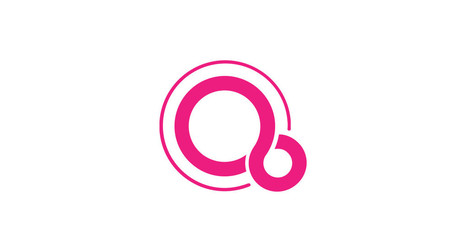

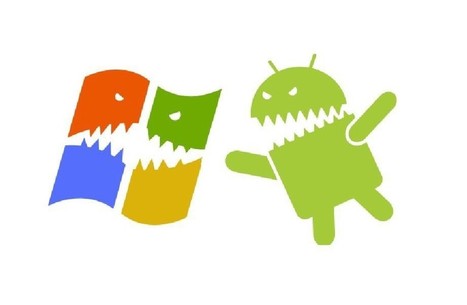

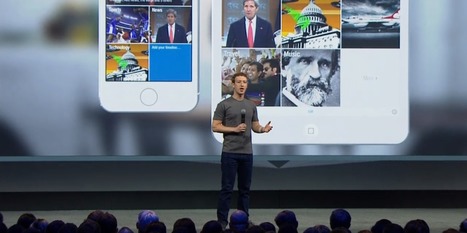
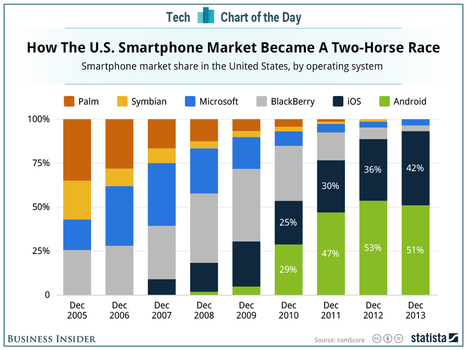
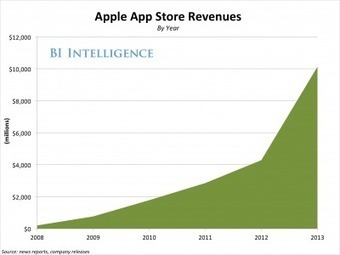
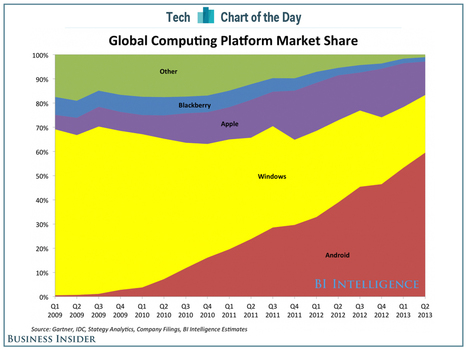


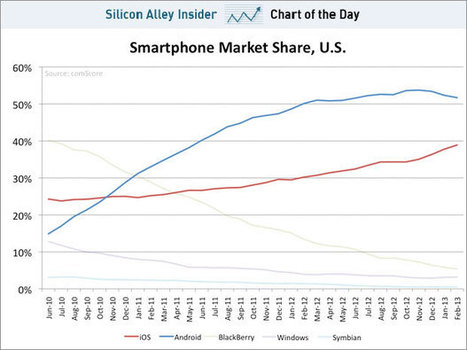
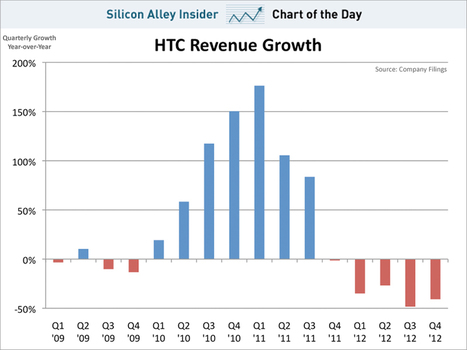
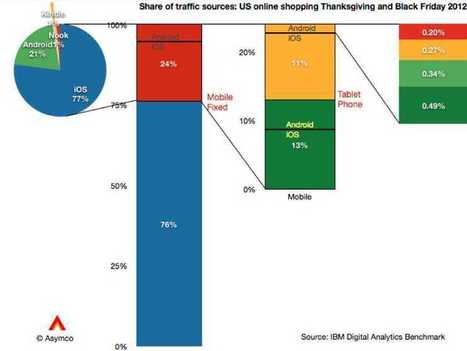
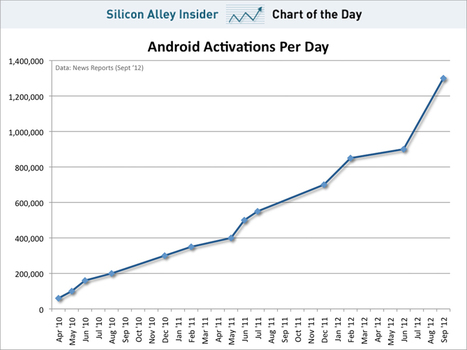
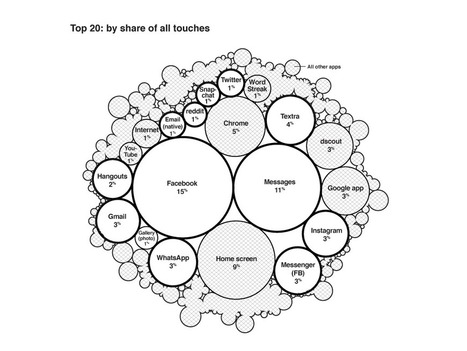
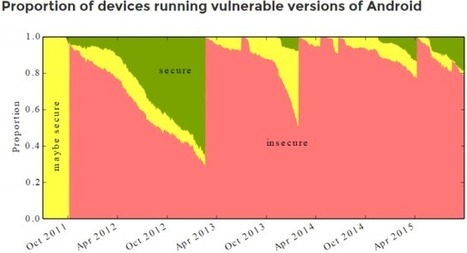
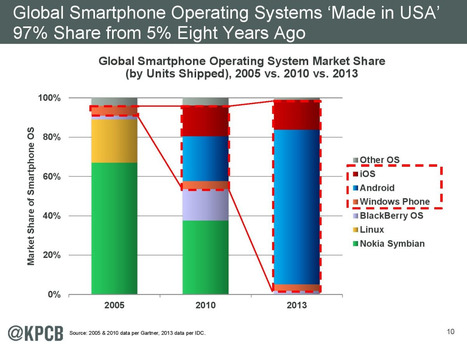
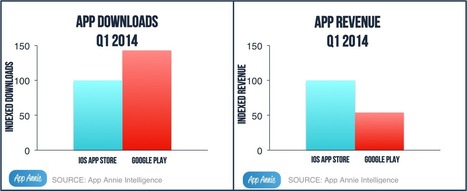
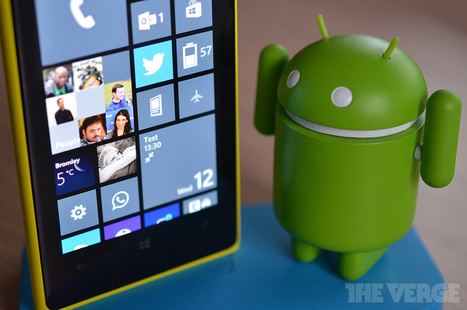
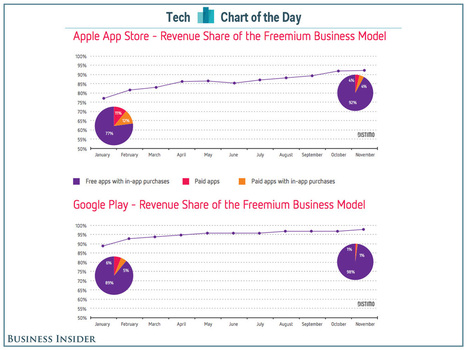
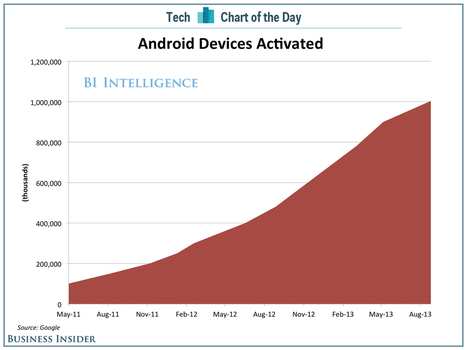

![More New Androids Than Babies, And Other Surprising Mobile Facts [Infographic] | cross pond high tech | Scoop.it](https://img.scoop.it/12CV2a-pXDgOdg80N6ecmzl72eJkfbmt4t8yenImKBVvK0kTmF0xjctABnaLJIm9)


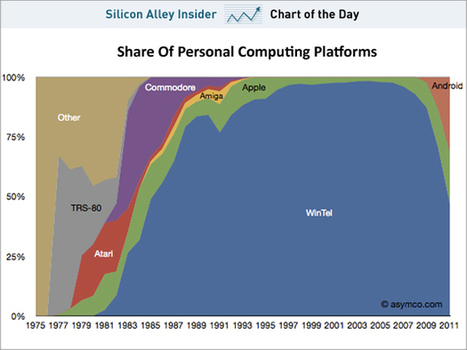





YAOS - Yet Another Operating System ? Coming from Google, it might be more than a fad...